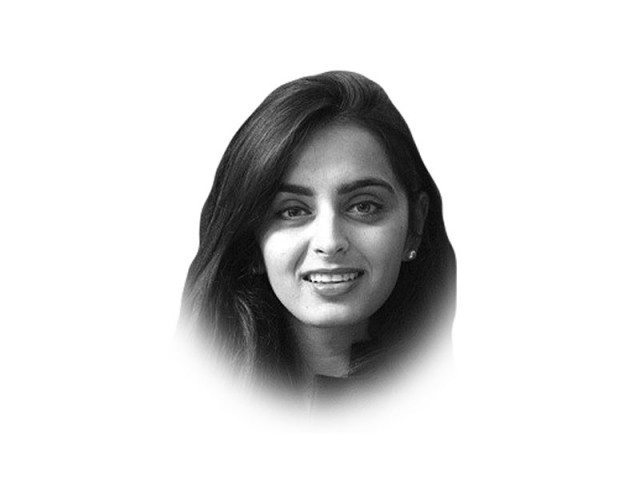An ideological education
Indoctrinated through selective account of our values and our past, we are made intolerant of diversity and difference

An ideological education
The eventual victor appears to be the Jamaat-e-Islami, with the Pakistan Tehreek-e-Insaf (PTI) acceding ground. Yet, it remains unclear against whom our criticism ought to be directed. The Jamaat’s demand for a return to the 2002 school curriculum developed under the Muttahida Majlis-e-Amal regime and its doctrinaire emphasis on the espousal of a certain ideology is unsurprising. In the words of the K-P Minister for Local Government Inayatullah Khan, the Jamaat’s call extends only to the re-inclusion of the subject matter allegedly expunged from school curricula under the previous ANP provincial government: principles of jihad, theories of creationism articulated in Quranic verses and an emphasis on the Two-Nation Theory.
The PTI may have put up some resistance against the Jamaat’s educational agenda, or at least the protests registered by the Islami Jamiat-e-Talaba and the JUI-F certainly suggest so.
As a result, young children in K-P, to state one instance, will no longer be exposed in their textbooks to the culturally aberrant image of ‘girls in skirts’, to be replaced now by the more acceptable depiction of a girl child donning the head cover. The Jamaat’s concern, it is argued, is the development of a school curriculum reflective of the culture and ideology of Pakistan.
While the actual nature and the exigencies of such compromise remain uncertain and debatable, this debacle has clearly highlighted the ideological exploitation by political forces of the state’s authority over the process of education. An ideologically driven state educational agenda is problematic. Its end is defined and is thereby assessed in terms of the degree of conformity and adherence to a particular ideology, politics or belief system that it is able to engender in the young minds it educates. History is tweaked, images altered, literature selected, all to reinforce and perpetuate a particular mindset.
That school education is a powerful tool capable of fashioning student’s beliefs and attitudes is widely acknowledged. A recent study conducted by the US National Bureau of Economic Research has concluded a direct causal effect of the school curricula introduced by the Communist Party of China from 2004 to 2010 on children’s political, social and religious views.
We are all too familiar with the tailored lessons in political and religious history fed to us through school. The selective and often obscure account of the 1971 war and the subsequent secession of Bangladesh and the complete erasure of the Jamaat’s opposition to Partition of the subcontinent are just some instances of the skewed instruction, which has modelled us into the conforming nationalists our education system sought to produce.
A pre-occupation with feminine virtue is again not unique to the Jamaat’s educational agenda. Studies of school texts published over the years in Pakistan demonstrate the elevation of obedience, domesticity and docility in women, thereby laying down acceptable boundaries of gender roles in society. Yet surely, the purpose of education goes beyond such mental fashioning? What of intellectual growth, curiosity and critical thinking? An ideologically driven curriculum may still be informed by such objectives, but positions them only second to its higher prioritisation of conformity.
What do we lose out from such instruction? Indoctrinated through a selective account of our values and our past, we are made intolerant of diversity and difference, robbed of the capacity to reason, to critique existing power structures and conceive our surroundings in a creative fashion. The deployment of ideological education as an instrument of nation-building may not be unknown even in states which term themselves secular. But where the processes of education are ideologically determined, the objective of human development is put on the back burner, at great loss to the developing minds of a state.
Published in The Express Tribune, November 4th, 2014.
Like Opinion & Editorial on Facebook, follow @ETOpEd on Twitter to receive all updates on all our daily pieces.















COMMENTS
Comments are moderated and generally will be posted if they are on-topic and not abusive.
For more information, please see our Comments FAQ